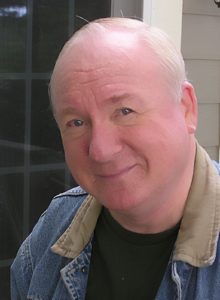Editor’s note: This post originally ran on Minnesota Public Relations Blog on Aug. 18, 2010.
In this, the second of two parts of our interview with Jim Lukaszewski, he discusses his books, advice to practitioners and his take on the role of PR in society.
1. Of the dozen or so books you’ve written, which is the most important? Why?
In 1992, I published a book (just 44 pages) called Influencing Public Attitudes: Strategies to Reduce the Media’s Power. The concepts were about communicating directly to those whose lives and circumstances we affected, changed, or were damaged rather than through the news media. While that book never used the word “victims,” I was essentially saying that what matters most, what is ethically required first, is to deal with the victims we create or whose lives we are going to change. Today, with the Web and new media, you might read this book and say, “So, what’s new?” My insight was less about the future and more about how to honorably and effectively manage present problems directly rather than through the news media. It was a novel idea at the time. Even with today’s incredibly helpful technologies, we’re still learning how to communicate directly, effectively.
The book, now out of print, originally sold for $14.95. You can occasionally find a copy on eBay for $75 or for $54 on Amazon. I’m not sure exactly what that means except that neither the publisher nor I are getting any royalties.
2. Your latest book, Why Should The Boss Listen To You? The Seven Disciplines of the Trusted Strategic Advisor (Jossey-Bass, 2008), is a business book rather than a communications book. Why did you write it? What did you hope to accomplish?
Yes, it is a business book, but it is actually all about communication – the personal communication, strategies and philosophies of the strategic advisor and those they advise. The publisher originally wanted me to make it a leadership book, but I was more interested in helping those who want to be near and helpful to leaders rather than be leaders themselves. The reason is very practical. There are 10, 100, maybe 1,000 times the number of advisors as there are CEOs and practicing leaders. Also, there is very little written about the job of the number two person, or the significant advisor.
One of the more unusual aspects of my practice has been the opportunity to observe advisors and practitioners from all staff, external and operational functions, and analyze the work of these individuals for my clients. Like most things in life, successful advisors exhibit patterns of behavior, thinking and action that, if noticed, explored and explained, can be used to help and teach others. This book is an example of what I’ve been doing and continue to do throughout my professional life. I am an observer, a teacher, a coach and an ethical and ideological compass for those leaders who need or want to explore these things.
3. Your website, www.e911.com, contains a huge amount of crisis management information that you both sell and give away. Is that how you market yourself?
The website came about because our two sons, Chuck and James, from the time they were teenagers, were really into anything to do with computers and especially the emerging phenomenon of the World Wide Web. Our site went up in 1997, and we wanted to use the URL 911.com. At that time, completely numeric URLs were prohibited. That’s why it’s e911.com. The “e” is for emergency. As they were building our site, Chuck and Jim were inventing eWatch, the first Internet monitoring service. They later sold that company, and it is still operating.
The purpose of e911 has always been to make my writings, publications and other content available to the widest possible audiences. The site has a second URL, www.crisismanagementuniversity.com. It’s only in recent years that the cost of maintaining a website has forced us to monetize much of the content. However, a visitor can generally download a copy of anything for free, so long as it is for personal use. Even today, if a college professor calls and wants to use an item of mine in class and it is available on our website, we suggest that each student download a single personal copy. My philosophy is that if what I do is truly valuable, it won’t do anyone any good if it sits on a disk somewhere, on a shelf, in my computer, or just in my brain.
4. What advice would you give to the new practitioner, even the mid-career practitioner about enhancing their professional lives?
First, go into government if you can, even if it’s just a couple years, wherever you can find a spot. Through a fortuitous accident, great good luck and Metro State, I got an internship in the office of former Gov. Wendell R. Anderson (D-Minn.) as a part-time deputy press secretary. I was 31 at the time and, therefore, one of the oldest interns around. I was, in fact, called “the old guy.” It was priceless experience. Government in America, at any level, is a miracle and a marvel you really want to understand from the inside out. Some of the greatest lessons about advising other people, resolving contentious situations and dealing effectively with leaders and high ego personalities came from my few years in government service.
America is a commercial democracy rather than a government-driven society. Knowing how government works, at whatever level, can be extremely valuable as a professional credential.
Second, be curious, a lifelong learner, a good question asker and assumption challenger. Most mistakes and bad decisions happen because people who know better look the other way, and fail to challenge or question what are, in hindsight, often really stupid decisions. And recognize that the moment you hear the words “Do whatever it takes,” you can reliably forecast that someone will be doing something unethical, illegal, or at best unnecessary, sometimes criminal, at the expense of others.
Third, develop a personal code of honor. Write it down, think and talk it through, then live by it. Benjamin Franklin had his 13 virtues: temperance, silence, order, resolution, frugality, industry, sincerity, justice, moderation, cleanliness, tranquility, chastity … then later, after being accused of arrogance, he added #13: humility. Thirteen is a lot. There were only 10 Commandments. Start with a handful and build out from there. Live up to them, with them, and through them every day. Most successful advisors and consultants have something like this that they can talk about. They worked hard to define themselves so they can help others define themselves.
5. What is the most frequent question you’re asked to respond to by practitioners?
That question is, “Will I have to bide my time, and look like you (I’m 68 this month), to gain access to the C-suite and have the influence you appear to have?” Early in my New York experience, I wound up working on Wall Street for a couple years. I was 44 at the time. The first thing you realize about Wall Street is that while the fat cats get in the headlines because of their big bonuses and arrogant behavior, the place is actually run by people well under the age of 30. They are far less visible “fat kittens” and as arrogant as their seniors. These are very smart people and what really matters is what comes out of their mouths, based on what they know rather than their age, gender, or emotional intensity. I haven’t been on Wall Street daily for many years, but I can tell you reliably that the access, influence and acceptance of advice, counsel and ideas from these very smart young people holds true today. It holds true in public relations, too.
6. What should PR be doing to enhance its relevance, importance and influence in our society?
First, in this age of new media, dying media, and new media behaviors, public relations should take a very powerful monitoring role of all that media does. While our country owes much of its success to maintaining and protecting a robust and free news media, the explosive access to communication platforms by so many, so easily has changed the rules. The public should have the benefit of informed independent commentary, analysis, and assessment of journalistic processes, practices and behaviors. The serious decline in public respect and confidence for traditional journalism can only be remedied, if that is even possible, with independent, highly trustworthy, direct and credible oversight.
In an era where everyone is a journalist, one of the greatest services we can provide is some independent discussion, validation and constructive criticism. This is especially important since some of the most tangible and visible byproducts of new media are contention, confrontation, bullying and fabrication.
Second, public relations needs to put media relations in the context of everything our profession provides and our clients expect. Media relations is a fraction of current public relations practice. We are still far too dominated by who reporters are and what they do every day. Yes, media relations matters, but as the ability to identify specific individuals as targets for messages and information, and the ability to actually deliver specific, highly targeted, very appropriate information directly, increases every day, the need to participate in broad brush, shotgun-like, inefficient, often seriously inaccurate information approaches declines.
Third, America is experiencing a privacy crisis. If you doubt this, here is a recent comment from Google CEO Eric Schmidt in The Wall Street Journal: because of the information Google has collected about you, “We know roughly who you are, roughly what you care about, roughly who your friends are, and also generally where you are within a very few inches.” The founding fathers made some interesting assumptions, perhaps, about each one of us having a zone of privacy, but just the opposite is occurring. In our Constitution, privacy is only explicitly guaranteed to criminals, or suspected criminals, through the Fifth Amendment.
New media operatives, operating as journalists, rip away the assumed privacy for anyone they target. The agitation for digital health records storage, the insatiable appetite for data by global aggregators, and the attempt to profile every one of us as individual market targets for sales to strangers for everyone’s benefit but our own, needs powerful controls, restrictions and oversight. It may be a pipe dream, but America needs a simple, sensible, constructive, individual privacy strategy built into our Constitution. One crucial, potential force in our society that’s capable of thinking this through and advocating a doable rational approach are the professionals who do the communicating every day. Privacy is a human right. We should be able to control much of our own destiny, and have the affirmative option of giving or sharing, rather than being hapless, helpless victims of anyone who can access the Web, public and private records, or who can, without any controls or oversight, expropriate our privacy, and therefore, our individual independence.
This rush to expose and share has become so stupid that an advocate of this mindless collection of information on each of us is now recommending that everyone plan to change their names around the age of 18 to separate themselves from anything that might be on the Web or available in databases prior to that time, and do that time and again as one’s life progresses.
If only the founding fathers had expanded our national aspirations by a single concept, then it would have been life, liberty, privacy, and the pursuit of happiness. Our lives would be very different.

